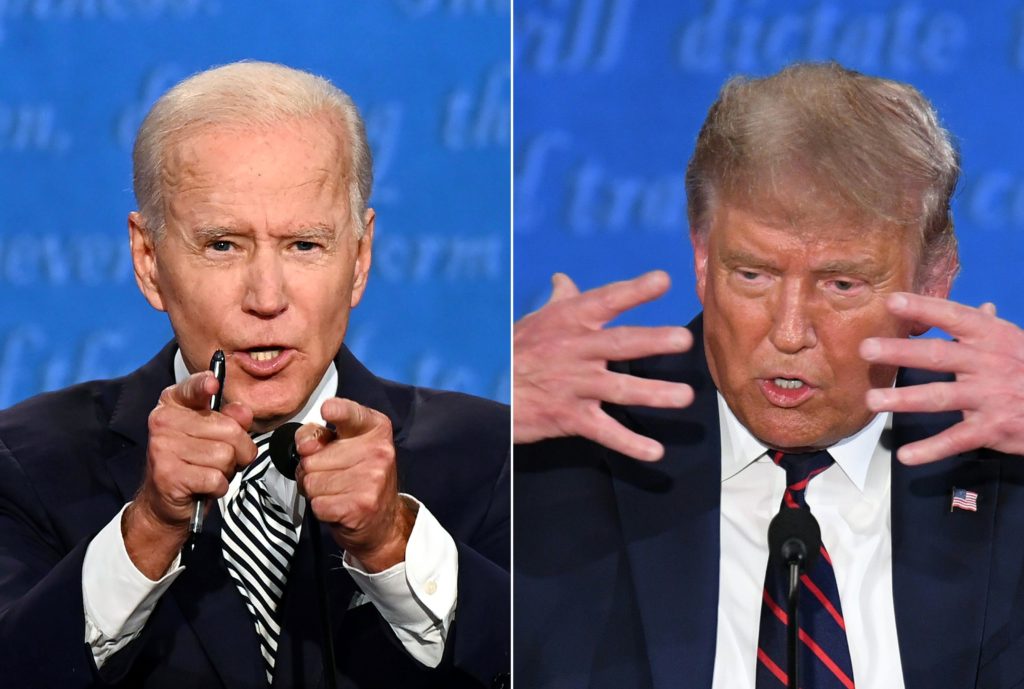Does Biden Have a Second Term Agenda?

I am not saying people pay enough attention to platforms and agendas for them to matter much in elections, but it still seems to help to have one. And….has Biden articulated one for a potential second term?
Biden’s reelection campaign has yet to kick into gear, but the time for laying out a second-term agenda—a real one, not the milquetoast “keep on trucking” appeal favored by most of his predecessors—is here. Thus far, it’s not entirely clear what a Biden second term would look like, a problem that exacerbates many of the president’s other ones: There is a palpable sense of inertia within the administration.
Biden could jump-start his flagging campaign by returning to the ambitious agenda he pursued in the first two years of his administration: pushing large-scale spending programs that helped lower unemployment and raise wages. He can continue to promote the pro-union agenda that he has, with some success, deployed during the strike wave that defined much of the middle portion of 2023. Unlike the campaign’s current focus—“Bidenomics,” an attempt to sell voters on an economy they simply do not like—the president’s campaign can push the idea that further large-scale programs are the way out: They’ll raise wages and help ease the burden of high prices.
On domestic policy, there is good news and bad news. The good news is that Biden and his allies have yet to play their trump card. Voters have, across the country, repeatedly voiced their displeasure at the repeal of Roe v. Wade. There is every indication that they will continue to do so and that abortion will be the most important issue for a significant number of voters—it will likely be the most important noneconomic issue in the presidential election. Biden is helped by the fact that the repeal would not have happened had Trump not appointed three very conservative justices to the Supreme Court. Biden can run on protecting a woman’s right to choose—and on appointing liberals to the Supreme Court, should vacancies arise. (The two oldest members of the court are both conservatives who can be expected to retire if Trump wins reelection.)
On immigration, Biden faces a different problem, especially as he has adopted more and more of his predecessor’s vile, draconian policies in an effort to deflect criticism. Nonetheless, Biden can (and should) propose a more cohesive framework for actual immigration reform—and use it as a contrast with Trump, whose policies are purely fascistic. In terms of foreign policy, things are similarly complex. Nevertheless, the Biden administration’s current approach—continuing to fund, to the tune of billions, two ongoing wars with no clear endgame or off-ramp—is a failure. But Biden can begin to articulate how these wars can end—while making the case that Trump’s own approach (a Nixonian “secret plan”) is a fantasy.
It is true, of course, that most of these policies are unlikely to come to fruition, should Biden win reelection—Democrats may retake the House, but they will be lucky to hold onto a slim majority in the Senate; in any case, as the first two years of his term showed, getting things done when you have slim majorities is hard, whether you be a Democrat or a Republican. But that also doesn’t matter! Political campaigns are about visions and contrast, not the petty realities of governing in a country with a constitutional system that makes achieving anything quite difficult. Biden is shirking his biggest responsibility right now, which is to make a cohesive and comprehensive case for why he should be reelected. The answer is not that he’s an octogenarian who will keep a stalled ship running. Instead, it’s time to articulate a vision for the country in 2025—and beyond.
Now, you have to sort of leave behind the “the Democratic Party should adopt my specific policy preferences” here, which is common in every single article about these topics across the political spectrum. Everyone from David Brooks down to the local guy on Twitter believes that success for political parties is always adapting their own personal preferences. But I do think that “I’m Not Donald Trump” is not really going to work here. But I haven’t seen Biden really articulate much more than his return to normalcy campaign of 2020.
Thoughts?


